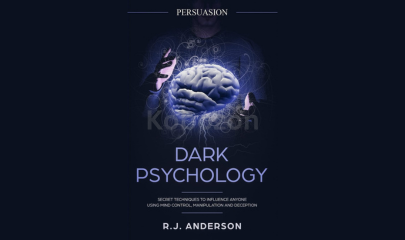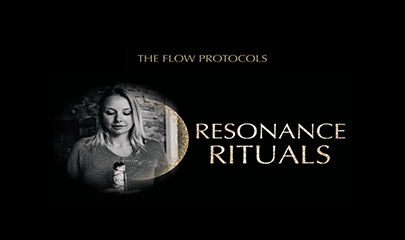-
×
 The Complete Course of Ayurveda 3.0 By Jai Dev Singh - Life Force Academy
1 × $148,00
The Complete Course of Ayurveda 3.0 By Jai Dev Singh - Life Force Academy
1 × $148,00 -
×
 GET SEEN, PLANT GREEN BUNDLE By Sorelle Amore
1 × $62,00
GET SEEN, PLANT GREEN BUNDLE By Sorelle Amore
1 × $62,00 -
×
 The ClickMinded Paid Advertising Course By Lucas Lee-Tyson
1 × $171,00
The ClickMinded Paid Advertising Course By Lucas Lee-Tyson
1 × $171,00 -
×
 Best Workflow Practices for Architectural Photography By Mike Kelley
1 × $5,00
Best Workflow Practices for Architectural Photography By Mike Kelley
1 × $5,00 -
×
 The Agony and Ecstasy of Being a Magnetic Being on Earth by Sara Allen
1 × $15,00
The Agony and Ecstasy of Being a Magnetic Being on Earth by Sara Allen
1 × $15,00 -
×
 Trend-Rev Block And Ea Forex System - No Mt4 Indicator - By Ifxsuccess
1 × $69,00
Trend-Rev Block And Ea Forex System - No Mt4 Indicator - By Ifxsuccess
1 × $69,00 -
×
 Training the Electric/Magnetic Lines of Force with Movement By Sixty Skills
1 × $15,00
Training the Electric/Magnetic Lines of Force with Movement By Sixty Skills
1 × $15,00 -
×
 The Others Within Us - Unattached Burdens and Guides in IFS Therapy By Robert Falconer
1 × $69,00
The Others Within Us - Unattached Burdens and Guides in IFS Therapy By Robert Falconer
1 × $69,00 -
×
 The Lead Refinery by Ross Lochlainn
1 × $18,00
The Lead Refinery by Ross Lochlainn
1 × $18,00
Persuasion Dark Psychology By Anderson
$5,00
Persuasion: Dark Psychology By Anderson – Immediate Download!
Let’s embark on a captivating adventure to uncover remarkable insights that spark your curiosity and elevate your understanding

Persuasion Dark Psychology By Anderson
Overview

Persuasion: Dark Psychology By Anderson
In an age where the nuances of human interaction can make or break personal and professional relationships, understanding the mechanics behind persuasion becomes crucial. R.J. Anderson’s Persuasion: Dark Psychology – Secret Techniques to Influence Anyone Using Mind Control, Manipulation, and Deception seeks to unravel these intricate dynamics, presenting a range of psychological techniques that reflect the darker sides of human influence. Some readers commend the book for its accessible introduction to a topic often shrouded in mystery and complexity, while others criticize its perceived lack of substance. In this review, we will explore the central themes of the book, evaluate its strengths and weaknesses, and delve into the ethical considerations surrounding manipulation and persuasion techniques.
Overview of Key Themes
Anderson’s book serves as a compass for navigating the controversial waters of dark psychology. By addressing key elements such as manipulation, hypnosis, and neuro-linguistic programming (NLP), the author aims to provide a holistic perspective on how individuals can wield the power of persuasion.
- Manipulation: The art of manipulating others often evokes negative connotations, yet it is presented in the book through a framework that emphasizes its practicality. Anderson outlines various manipulation techniques, including emotional appeals and strategic deception, as vital tools for those seeking to influence others effectively.
- Hypnosis: A particularly fascinating aspect Anderson addresses is hypnosis. He demystifies the process, comparing it to a skilled performer who captivates an audience. This comparison serves to highlight how understanding the subconscious can lead to success in influencing others.
- Neuro-Linguistic Programming (NLP): The author posits that NLP techniques can create profound shifts in communication. He emphasizes that by altering the way we frame conversations, we can shift perceptions and attitudes effectively.
Table of Key Techniques Discussed in the Book
| Technique | Description |
| **Emotional Appeals** | Leveraging emotions to sway decisions. |
| **Strategic Deception** | Using manipulation to create a desired narrative. |
| **Subconscious Conditioning** | Employing hypnosis techniques to influence thoughts. |
| **NLP Techniques** | Techniques to reprogram thought processes and language. |
Reader Reactions: Praise vs. Criticism
The mixed reviews surrounding Persuasion: Dark Psychology paint a vivid picture of the book’s reception. Many readers commend Anderson for making complex psychological concepts accessible to a general audience, with particular emphasis on the earthy grounding of abstract theories in real-life situations.
For instance, those new to the field often find themselves enlightened by Anderson’s direct approach. They appreciate the wide spectrum of techniques, not just as abstract strategies, but as tools to enhance the reader’s daily interactions. This accessibility can benefit individuals seeking to improve their interpersonal skills in a world where effective communication is paramount.
Conversely, some readers express disappointment about the depth of content offered. Critics describe the book as a superficial survey lacking the comprehensive analysis that experienced practitioners might seek. They argue that while the techniques are introduced adequately, Anderson often neglects to delve into practical applications or detailed explanations, leaving some readers feeling frustrated and yearning for more substance. This dichotomy in reception illustrates the challenge of satisfying diverse audience expectations.
Pros and Cons Summary
| Pros | Cons |
| Accessible introduction to dark psychology | Lacks depth and detailed explanations |
| Broad coverage of techniques | Superficial treatment of complex topics |
| Practical applications for personal interactions | Frustrating for experienced readers |
Ethical Implications of Psychological Manipulation
One of the book’s most striking contributions lies in its exploration of the moral implications of persuasion techniques. While Anderson lays out powerful strategies for influence, he also sparks an essential dialogue about the ethical boundaries of manipulation. In a world increasingly aware of consent and interpersonal integrity, how far can one go in seeking persuasion?
The juxtaposition of powerful persuasion skills with ethical considerations creates a complex landscape for readers. Anderson invites us to ponder: Does the end justify the means when it comes to influencing others? Are there circumstances where manipulation may be acceptable, or does it inherently undermine trust?
In addition, his exploration of this tension serves as a reminder of the personal responsibility each individual bears when applying psychological techniques. The line between influence and exploitation can be thin, suggesting that readers must tread carefully as they work to enhance their persuasive efforts.
Ethical Considerations List
- Informed Consent: Understanding whether the person being influenced is aware of their manipulation.
- Impact on Relationships: Considering how manipulation can affect trust and rapport.
- Consequences of Influence: Evaluating the potential fallout from deceptive practices.
Conclusion
In examining R.J. Anderson’s Persuasion: Dark Psychology, we encounter a comprehensive yet contentious exploration of psychological influence. While many readers will appreciate the book as an accessible introduction to dark psychology, emphasizing its practical applications for everyday use, others may desire a more profound and nuanced understanding of the techniques presented. The ethical considerations posed throughout the text further enhance its importance, prompting readers to reflect critically on their approach to persuasion.
Overall, Anderson’s work emerges as a double-edged sword equipping us with the language of influence and manipulation while simultaneously urging caution and introspection about how we wield such power. Whether you view this resource as a launchpad for self-improvement or a troubled manifesto on the darker sides of psychology, there is no denying its provocative examination of the human psyche.
Frequently Asked Questions:
Innovation in Business Models: We use a group purchase approach that enables users to split expenses and get discounted access to well-liked courses. Despite worries regarding distribution strategies from content creators, this strategy helps people with low incomes.
Legal Aspects to Take into Account: Our operations’ legality entails several intricate considerations. There are no explicit resale restrictions mentioned at the time of purchase, even though we do not have the course developers’ express consent to redistribute their content. This uncertainty gives us the chance to offer reasonably priced instructional materials.
Quality Control: We make certain that every course resource we buy is the exact same as what the authors themselves provide. It’s crucial to realize, nevertheless, that we are not authorized suppliers. Therefore, the following are not included in our offerings: – Live coaching sessions or calls with the course author.
– Entry to groups or portals that are only available to authors.
– Participation in closed forums.
– Straightforward email assistance from the writer or their group.
Our goal is to lower the barrier to education by providing these courses on our own, without the official channels’ premium services. We value your comprehension of our distinct methodology.
Be the first to review “Persuasion Dark Psychology By Anderson” Cancel reply
You must be logged in to post a review.
Related products
Personal Development
Cognomovement An Energy Healing System With Bill McKenna and Liz Larson – The Shift Network
Personal Development
Abundance And Money Workshop Replay By Samantha Chung & Gina Bourne
Personal Development
Personal Development
Training the Electric/Magnetic Lines of Force with Movement By Sixty Skills
Personal Development
Personal Development
The Others Within Us – Unattached Burdens and Guides in IFS Therapy By Robert Falconer
Personal Development

















Reviews
There are no reviews yet.